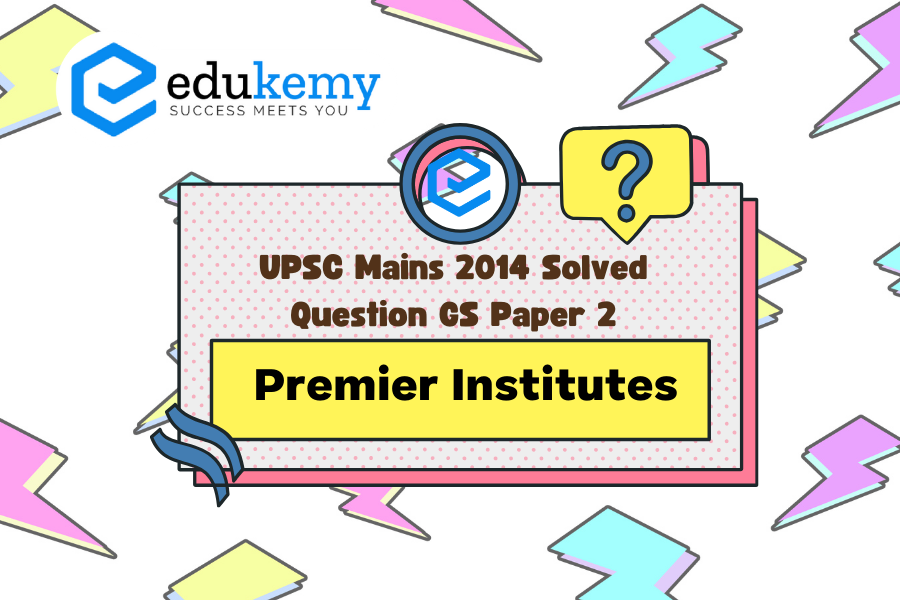In a rapidly evolving educational landscape, the debate over the autonomy and status of premier institutes like the Indian Institutes of Technology (IITs) and Indian Institutes of Management (IIMs) is gaining prominence. Proponents argue that these institutions should be granted greater academic independence in designing courses and determining selection criteria to maintain their premier status. This perspective posits that such autonomy fosters innovation, encourages academic excellence, and ensures relevance in a dynamic global context. However, this stance is not without its challenges. Critics contend that excessive autonomy could lead to elitism, exclusion, and a departure from societal needs. Moreover, the growing demands for equitable access to quality education necessitate careful consideration of inclusivity and diversity in the selection process. As educational institutions grapple with the complexities of a rapidly changing world, striking a balance between preserving excellence and promoting accessibility emerges as a paramount concern. This essay explores the implications of granting premier institutes greater autonomy, navigating the delicate equilibrium between academic freedom and societal responsibility in addressing the evolving challenges of the 21st century.
Tag: Issues relating to development and management of Social Sector/Services relating to Health, Education, Human Resources.
Contents
Decoding the Question:
- In the Introduction, try to give a brief introduction about IITs and IIMs and why they need more autonomy.
- In Body, discuss the Challenges faced by IITs and IIMs.
- In Conclusion, try to conclude with the recommendations of the National Policy on Education (1986-1992).
Answer:
Indian Institute of Technology (IITs) and Indian Institute of Management (IIMs) are accorded as Institute of National Importance (INI). INI is a status given to these premier institutes because they are a pivotal player in developing highly skilled personnel within the specified region of the country/state. But if compared with other institutions in the world, they are ranked poorly including the prestigious IITs and IIMs. The poor ranking of premier institutes calls for more autonomy and power.
Problems faced by IITs and IIMs:
- A major reason cited for these excellent institutions being unable to compete at the global level is the lack of independence and interference from governmental bodies/authorities in all matters relating to the functioning of the afore-mentioned premier institutes.
- In today’s time, the syllabus for any course needs to be regularly evaluated and modified so that it reflects recent developments and future trends.
- Procurement of different materials/objects/machinery/technology for research purposes, upgradation of infrastructure, provision of salaries to professors that is comparable to other international institutions so that good talent is attracted, transparent admission process that takes in only the best students, collaboration between industry and educational institution etc are areas in which IITs/IIMs lack.
Reforms Needed:
- More autonomy to IIMs and IITs is needed: Autonomy implies academic and administrative freedom which should result in the enhancement of quality of education and achievement of academic excellence.
- Bureaucratic Interference: Bureaucratic accountability is articulated through the misguided ‘Memorandum of Understanding’ approach which the HRD ministry forces the IIMs and IITs to copy. Parliamentary accountability through questions is acceptable, but CAG audit is not enough.
- Global ranking: Reputation of global schools depends on knowledge creation more than on knowledge dissemination i.e. R&D. On this both the IITs and IIMs fall short.
According to the National Policy on Education (1986-1992), institutions which have been granted autonomy status have the freedom to “determine and prescribe their own courses of study and syllabi, and restructure and redesign the courses. Academic independence is the major advantage of being an autonomous institution. It is now high time that IIMs and IITs should be allowed to retain premier status, allow more academic independence in designing courses and decide the mode/criteria of selection of students. Institutions which use academic and administrative freedom in a responsible manner will flourish.
In case you still have your doubts, contact us on 9811333901.
For UPSC Prelims Resources, Click here
For Daily Updates and Study Material:
Join our Telegram Channel – Edukemy for IAS
- 1. Learn through Videos – here
- 2. Be Exam Ready by Practicing Daily MCQs – here
- 3. Daily Newsletter – Get all your Current Affairs Covered – here
- 4. Mains Answer Writing Practice – here


